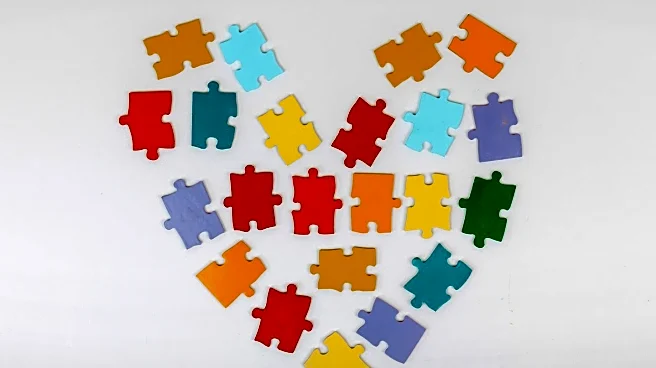What is the story about?
What's Happening?
The concept of the 'autism spectrum' is being reconsidered by experts who argue that it may not accurately represent the diversity of autistic experiences. Originally coined by Dr. Lorna Wing, the term was intended to capture a wide range of traits and needs among autistic individuals. However, the idea of a linear spectrum from 'mild' to 'severe' is seen as misleading. Autism encompasses various traits that manifest uniquely in each person, making it difficult to categorize individuals on a single spectrum. The American Psychiatric Association's diagnostic manual divides autism into levels based on support needs, but these levels are criticized for being vague and not reflecting real-world experiences.
Why It's Important?
Reevaluating the notion of an autism spectrum is crucial for recognizing the full diversity of autistic individuals and ensuring they receive appropriate support. The current spectrum model may inadvertently lead to judgments about the societal value of autistic people, particularly those with higher support needs. This reevaluation could foster a more inclusive understanding of autism, moving away from hierarchical categorizations that can dehumanize individuals. By acknowledging autism as a difference rather than a defect, society can better appreciate the unique contributions of autistic people and support their needs effectively.
What's Next?
The shift away from a single autism spectrum could lead to changes in diagnostic practices and support systems. Experts may develop new frameworks that better capture the complexity of autism, focusing on individual needs rather than generalized categories. This could influence policy decisions and resource allocation, ensuring that autistic individuals receive tailored support. Advocacy groups and researchers may continue to push for language and practices that reflect the diverse experiences of autistic people, promoting acceptance and understanding within society.
Beyond the Headlines
The reconsideration of the autism spectrum has ethical and cultural implications, challenging societal perceptions of neurodivergence. It highlights the importance of language in shaping attitudes towards autistic individuals and the potential for harmful political agendas. By moving away from simplistic categorizations, society can foster a more nuanced understanding of autism, reducing stigma and promoting acceptance. This shift may also influence educational and healthcare practices, encouraging professionals to adopt more personalized approaches to support autistic individuals.















